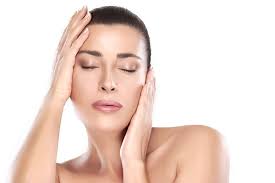Skincare Ingredients 101: Actives Vs. Inactives
Shopping for skincare sometimes feels like being asked to learn another language. How do you customize a skincare routine? What ingredients should you look for, and why? To start unpacking the answers, one good place to begin is with the issue of active versus inactive ingredients.
What Are ‘Active’ Skincare Ingredients?
When scanning the ingredients listed on a skincare product, you will see some components labeled as “active” ingredients. These are the parts of the formula that have been proven to impact the skin or to work against disease. If you’re looking at anti-aging products, for example, it’s common to see retinoids, such as vitamin A.For acne-fighting options, you might see benzoyl peroxide and/or salicylic acid.
What Are ‘Inactive’ Skincare Ingredients?
“Inactive” ingredients are the other parts of the product. These components may serve any number of purposes, including impacting the skin, but they have not been clinically proven to do so. These parts of a skincare formulation include anything added to enhance its smell, feel, preservation, and/or ability to deliver actives to the skin.
Why Does This Matter for You?
Whether you’re standing in the cosmetics aisle or shopping beauty products online, it’s helpful to know how to read labels.
Here are two benefits:
- Knowing what you’re buying:Understanding the active ingredients used in a formula helps you know what research-backed components are involved, so you can know what to expect when using it. Keep in mind that ingredients are listed in order from those with the highest concentration to those with the least, so items that come first will make the biggest impact.
- Avoiding common mistakes: If you think using two products with the same active ingredients will double their effectiveness, you’re not alone — but you’re going to be disappointed. In fact, multiplying the amount of an alpha hydroxy acid or retinol can reduce its effectiveness. If you don’t pay attention to the listed ingredients, you could accidentally work against your skincare goals.
-
Essential Skincare Ingredients for Healthy and Radiant Skin
Achieving healthy and radiant skin involves more than just a daily skincare routine—it’s about choosing the right ingredients that cater to your skin’s specific needs. Here’s a guide to essential skincare ingredients and their benefits:
1. Hyaluronic Acid:
- Benefits: Hyaluronic acid is a hydrating powerhouse. It retains water, keeping your skin plump, moisturized, and reducing the appearance of fine lines and wrinkles.
2. Retinol (Vitamin A):
- Benefits: Retinol is renowned for its anti-aging properties. It promotes cell turnover, reduces fine lines, and helps fade dark spots, resulting in smoother and more youthful-looking skin.
3. Vitamin C:
- Benefits: Vitamin C is a potent antioxidant that brightens the skin, evens out tone, and protects against environmental damage. It also stimulates collagen production for firmer skin.
4. Niacinamide (Vitamin B3):
- Benefits: Niacinamide is a multitasking ingredient. It helps improve skin elasticity, reduces redness, and regulates oil production, making it suitable for various skin types.
5. Alpha Hydroxy Acids (AHAs):
- Benefits: AHAs like glycolic acid and lactic acid exfoliate the skin, removing dead cells and promoting a smoother texture. They can address concerns such as uneven skin tone and dullness.
6. Beta Hydroxy Acid (BHA) – Salicylic Acid:
- Benefits: Salicylic acid is excellent for oily and acne-prone skin. It exfoliates within the pores, reducing acne, blackheads, and whiteheads.
7. Peptides:
- Benefits: Peptides are amino acid chains that support collagen production, enhancing skin firmness and elasticity. They are beneficial for addressing signs of aging.
8. Ceramides:
- Benefits: Ceramides are essential for a healthy skin barrier. They help retain moisture, strengthen the skin’s protective barrier, and prevent water loss.
9. Hemp Seed Oil:
- Benefits: Hemp seed oil is rich in omega-3 and omega-6 fatty acids. It provides nourishment and hydration to the skin without clogging pores, making it suitable for various skin types.


